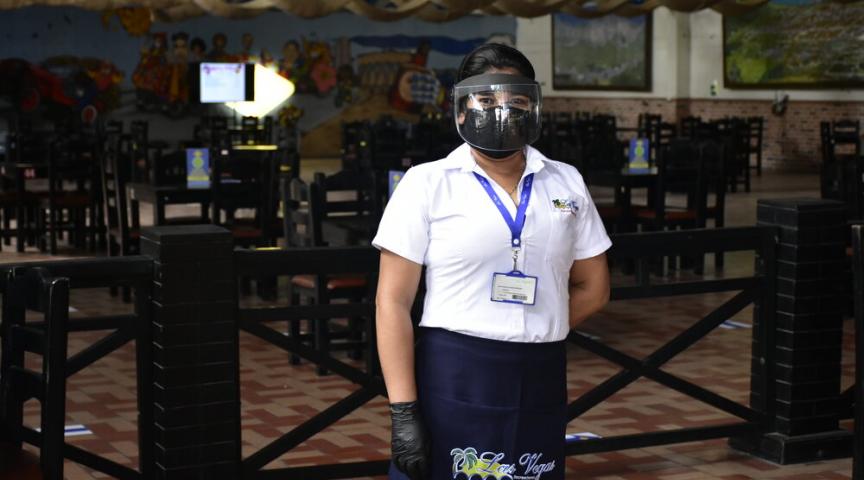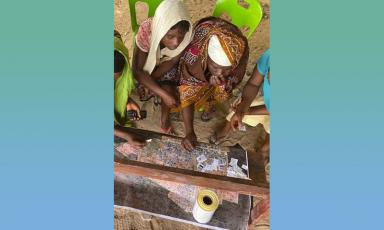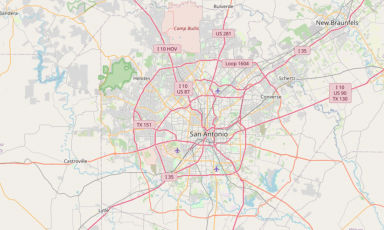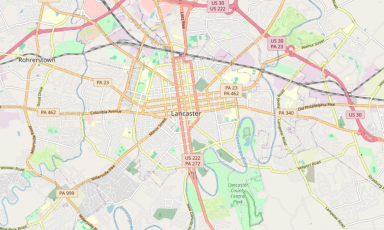Barranquilla, Colombia
Center for the Local Integration of Migrants

Summary
The Local Integration Center for Migrants functions as a one-stop center that centralizes the services offered by the District of Barranquilla, the national level and international cooperation partners for the comprehensive care of the migrant, refugee, stateless and returnee population, mainly from Venezuela.
Our main objectives are three: first, to consolidate ourselves as a space that is permanent and recognized by the population with a focus on orientation, referral, and integral attention to the migrant population. A space where the district, national and international cooperation organizations offer is centralized; and also, to decentralize this offer and take it to the five localities of the district through extra-mural workshops with leaders, community-based organizations, international cooperation and district and national entities and the private sector. Secondly, we seek to achieve the successful socioeconomic, cultural, and urban integration of the entire target population in Barranquilla through access to rights, social protection, humanitarian attention and productive integration. Finally, we seek to lead processes, mobilize, and articulate all levels of society to strengthen migration policy and governance, and thus become a national and international reference.
Impact
In the years 2020, 2021, and so far in 2022, 3,955, 7,046, and 2,924 families have been served respectively from the Local Integration Center for Migrants. Each family nucleus is estimated at approximately 5 people; giving an estimated total of 69,625 people. Through the extra-mural workshops, the Center benefits thousands more people in the territories.
We have been able to integrate the entire migrant population in the District of Barranquilla. We have achieved important accomplishments as a result of the articulated work with other entities, such as Migration Colombia. In this sense, Barranquilla is today one of the cities with the highest number of registrations to the Temporary Protection Status for Venezuelan Migrants and delivery of permits.
CILM services are available for migrant population but also for the host population, since this way an effective integration is guaranteed by the institution. Likewise, we hope that the improvement of living conditions and welfare indicators, the protection and guarantee of rights, effective access to health and education, and the entry into the formal labor market of the migrant population, will have a positive impact on the improvement of prosperity and urban inclusion indicators, and in terms of citizen security for all the inhabitants of the District.
CILM has received high-level visits that have validated the management and relevance of its work, as well as technical visits for the exchange of good practices by mayors of cities such as Cali, Cartagena and Soledad. Based on CILM's experience, the "Estrategia Intégrate: Integration Centers for Development" of the Border Management of the Presidency of the Republic, which is supported by USAID and IOM, is developing nine centers in the country and is in turn helping to strengthen our work.
In 2021, the IntegrHabitat network was launched from CILM and in March 2022, CILM won first place in the call for successful experiences in social integration and co-creation of habitat "Local Practices - Global Recognition" in the category "Humanitarian Assistance and Access to Social Protection".
Lessons learnt
Since its opening, the work developed in and from the Local Integration Center for Migrants has taught us the following lessons:
- The need to work in coordination with international cooperation and community-based organizations, in order to ensure a greater reach and impact of the programs and services available, as well as the importance of generating spaces for co-creation and synergy among the various entities.
- The importance of including and also benefiting the host population in the programs and services offered in order to guarantee effective social integration, through actions in the territories and joint work with community leaders.
- The relevance of accompanying and supporting our work with a comprehensive regulatory framework at the local level, that understands the needs of the population in the territory, and that contributes to the good management and planning of migration policies and migration management, in order to strengthen the migration governance of the Colombian State.
- The importance of developing a specific regulatory framework that facilitates the regularization of the migratory status of the migrant population, in order to guarantee access to protection services, social welfare and formal labor opportunities, which translate into the migrant's self-sustainability.
- The relevance of guaranteeing the socioeconomic, cultural and urban integration of the migrant population for the multidimensional development of the city.
- The importance of centralizing the supply of services offered by various actors for the migrant population in one place, but also the need to de-centralize the supply and take it to territories with a high concentration of migrants.
- The importance of including a differential approach in the attention to the vulnerable population.
- The benefits of including all levels of society in the conversation, including the public, private and academic sectors.



